In today’s advanced Western world we all have grown to expect a certain level of comfort in our daily lives. In Australia we are generally considered as being members of a post-industrial urbanised society, where we are increasingly spending more of our lives inside. Some reports suggest that our ‘Indoor Society’ now sees us spending up to 90% of our time indoors.
So, as we spend more time indoors and we expect more in terms of comfort conditions, the requirements and performance of our HVAC (Heating, Ventilation and Air Conditioning) systems has never been higher. In response the HVAC industry has developed systems that have never been better at keeping us safe, comfortable and healthy. However, a lot of work goes into the design, installation and maintenance of these systems and it can be quite easy to take heating, cooling and hot water services for granted.
Therefore, we feel that it is important that we should all have a basic understanding of what makes up our HVAC systems and know what to do when things go wrong. What if our hot water systems stop working in the middle of winter? What if we notice performance issues in our cooling and heating systems? There should always be someone friendly and knowledgeable for you to call.
In this guide, we’ll take a close look at the increasingly important topic of Indoor Comfort. We’ll also consider the work of heating and cooling specialists, and why it’s important to know who the best person is to call to keep your systems maintained, or if the unwanted happens and you have a break down who is going to get things up and running quickly.
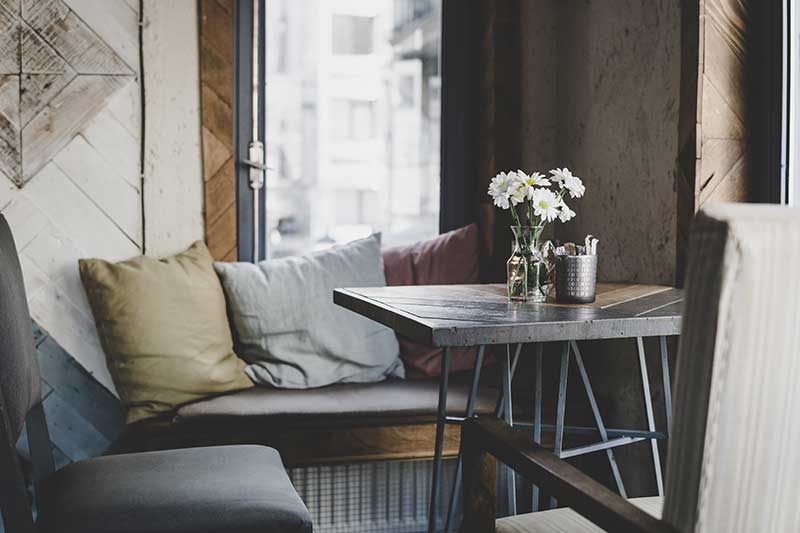
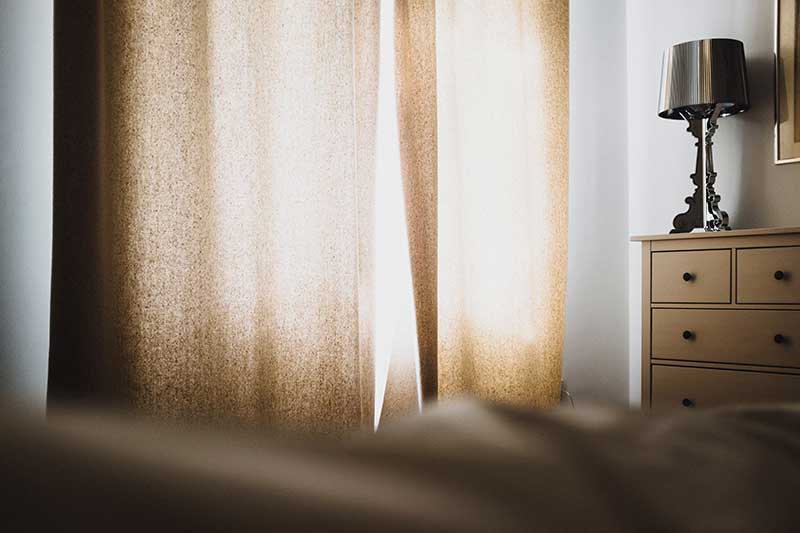
Air Conditioning and ventilation has been a measured, debated and highly regulated aspect of Commercial Building Design and Building Science for decades. In fact, there are National and International standards that that the HVAC industry must abide by in commercial applications. Yet, in our homes the standards are either non-existent or a long way behind what we expect in our workplaces.
Indoor comfort addresses a variety of issues, including thermal, visual, and acoustic comfort as well as air quality. Comfort, by definition, is a state of mind, defined by the Cambridge Dictionary as ‘a pleasant feeling of being relaxed and free from pain.’ Indeed, comfort is the personal sensation of feeling comfortable. It is simply the absence of discomfort, which is certainly a nice feeling to have.
Do you ‘feel the cold’ or ‘can’t stand the heat’? These personal sensations will determine your indoor comfort more than any science. Therefore, the design of your HVAC system needs to focus on how you live in your spaces and your personal preferences.
These personal factors need to be paired with good building practices, such as thermal insulation and reduction in heat loads, as well as the health considerations such as fresh air supply, humidity control and removal of dangerous gases such as Carbon Monoxide (CO). Whilst indoor comfort may be largely personal, there are a number of factors that are crucial to help keep your family safe and healthy. Not only can poor temperature control help to make things less comfortable for you, but certain people are also at risk when temperatures drop or soar. For example, the elderly and infirm will always need systems that can help to balance heat and cold in equal measure. Also, those who suffer from asthma are often triggered by environments with low humidity or with lots of air movement causing more dust in the air. For some, it’s a standard that can be crucial to everyday wellness, not just everyday comfort.
Indoor gas or electric heating is a modern standard throughout the cooler climates of the advanced world. You’ll rarely find a property in Victoria without a hard-working gas heating system!
To understand the best way to heat your home it is useful to learn a little about the different types of heating systems.
Space heating refers to a device that is designed to heat a single room or space within the home. The minimum building standard in Victoria is that the property must be equipped with a heating source that is sized to suit the main living area. With the readily available and cheap supply of Natural Gas in Victoria, this led to a high proportion of homes being built with a single gas wall furnace or space heater. Often these units were sized to heat areas larger than just the living space, however without a way to adequately spread the heat they generally resulted in a single hot zone and other cold areas throughout the home.
Whilst the use of a space heating system is not an efficient way to heat a whole house evenly, if you only required certain rooms to be heated, the installation of an adequately sized space heating system can be an economical product choice. Do you only want to heat your living space and hate hot bedrooms? Then consider a space heating system in the living space only.
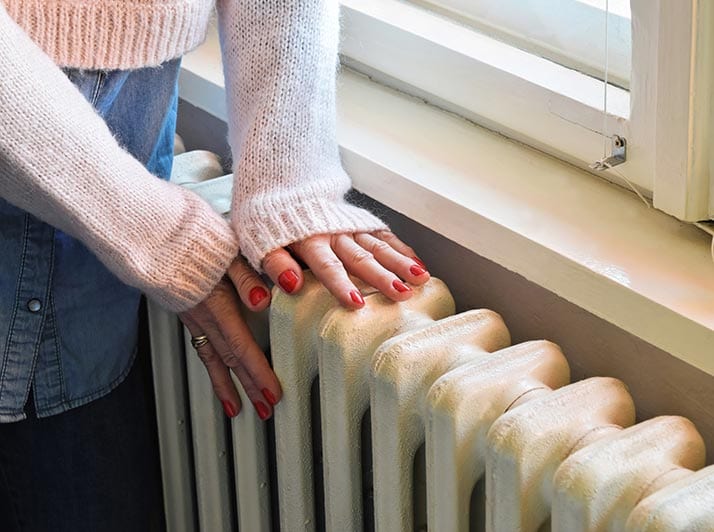
Space heaters come a number of different types using different energy sources. In Victoria the ready supply of Natural Gas has meant that many homes use wall furnaces, gas log fires and other gas space heaters. However, in areas without natural gas electric heaters are sometimes used as a simple way to heat a small area. Although these are generally very inefficient, consuming a lot of energy to produce the required heat.
As reverse cycle air conditioning technology has improved over the past few years, with the advent of very efficient Inverter systems, people are now choosing a reverse cycle split system air conditioner, which can provide heating and cooling over a heating only system.
Before we go further it is important to explain what a split system is! Most people think of a split system (or ‘splitty’) as the rectangular unit that sits high on the wall in a single room and is connected to the outdoor unit through a short run of refrigerant pipes. Whilst this is not incorrect, this is just the most common type of system, called a hi-wall split fan coil.
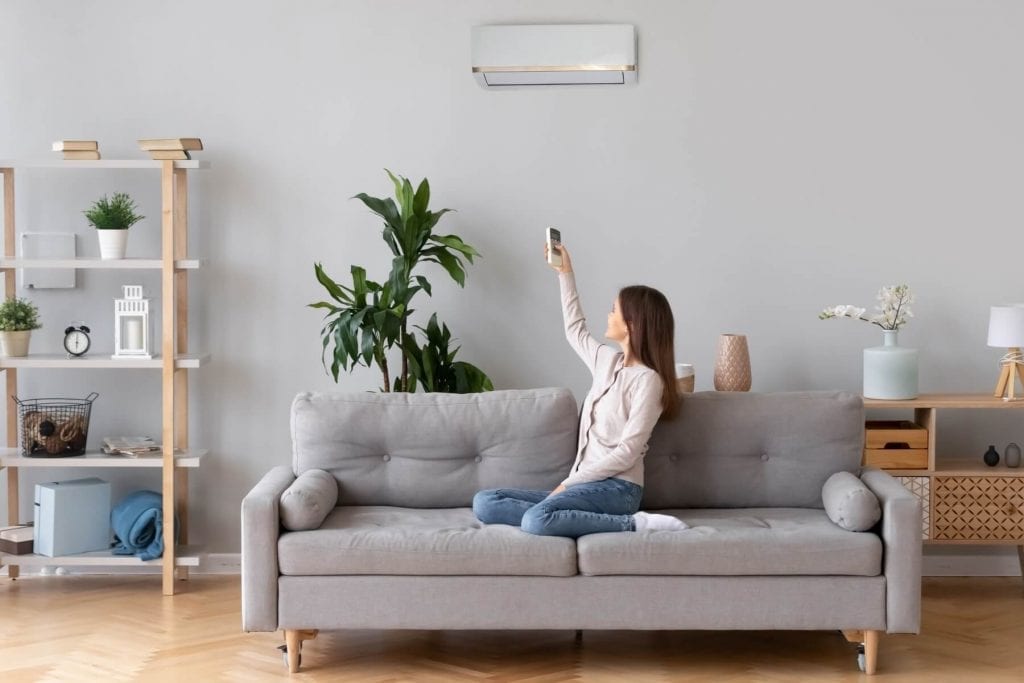
The term split system comes from the design which enabled a the air distribution unit, called the ‘fan coil’ (the part that you see up on the wall, or mounted in the ceiling or even up in the roof space), to be ‘split’ from the noisy outdoor compressor, called the condensing unit. In reality in residential applications almost all air conditioning systems used are actually split systems, whether or not they only work in one space, such as a hi-wall or cassette unit, or even if it is a split ducted unit that conditions multiple rooms.
In a space heating (or cooling) design the most common air conditioning systems are hi-wall units and cassette units. Each of these different units has their pros and cons that your specialist can advise you on depending on your installation requirements.
For many years, whole house central heating was a luxury that was definitely a bragging point on a real estate brochure. However, with the reduction in the cost of ducting and design of systems that can be easily installed within the roof space, central gas heating is now becoming a standard in Victorian homes.
The most common form of central heating uses a heating source, such as a gas furnace or reverse cycle ducted split A/C system. They are commonly installed in the roof or under floor space. The warm air is then distributed throughout the property using a network of flexible ducts that branch out to each outlet from the heater, like the branches of a tree.
Central heating systems can also be designed to allow the occupant to turn the supply air on or off to certain rooms (or areas), using dampers in the duct work that opens or closes ducts as required. This is referred to as zoning. This allows for greater efficiency as you are not heating rooms that are not being used, and may allow the selection of a smaller unit. Good zone design is imperative to ensure that the correct unit is selected and that the unit is not overworked (too small a unit for all zones) or overpowered (too much airflow produced for small zones). Your HVAC specialist is able to model the airflow requirements to ensure that your zone designs will deliver a comfortable indoor environment efficiently.
Reverse Cycle Air Conditioning systems have now improved in efficiency due to Inverter technology that sees them at least three times more efficient than a gas system, coupled with a fast-rising price and dropping supplies of gas, reverse cycle systems are quickly becoming the best choice for indoor comfort.
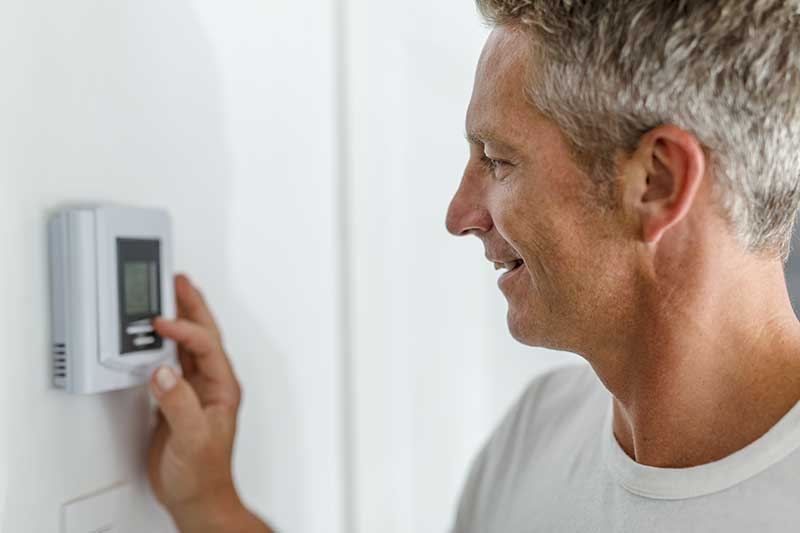
You may call a heating specialist if you need help upgrading an old, inefficient heating system.
Alternatively, if you are building a new home, a specialist will look at the layout of your home and make recommendations on the ‘best’ option for you. This means designing a system that would effectively heat your home, while providing the most cost-effective outcome based on your budget and needs.
It’s also a good idea to ask for help if you need to service your heating system. It’s recommended to service your home heating every 18-24 months. When servicing a gas heating system, a qualified gas service technician (not all plumbers are licensed to do this) will be able to test for dangerous Carbon Monoxide (CO) leaks and run tests in line with Energy Safe Victoria recommendations. Carbon Monoxide is an invisible but deadly gas that is produced in the combustion process of burning the gas energy source. If your flue is blocked or cracks exist in the internal heat exchanger, the combustion gases can leak into your home without you knowing. Unfortunately, there have been too many deaths in recent times from Carbon Monoxide poisoning due to leaking gas heaters, not to take this threat to your safety seriously [INSERT LINK TO TYLER & CHASE FOUNDATION].
If your heating system is starting to show signs of wear and tear or is driving up energy bills, it may be time to speak to a specialist. An inefficient system is likely to provide you with headaches and concerns for years to come, both in the cost of running it and with the health of those living at your home.
Melbourne is classified as being in a Mild Temperate climate zone, which has meant that the primary focus for indoor comfort has been on effective heating systems.
To understand the best way to cool your home it is useful to learn a little about the different types of cooling systems.

The use of ceiling or movable pedestal fans is still the most economical way to provide a feeling of cooling the environment. Whilst the fan does not actually reduce the temperature in a room the movement of air across your skin has been reported as providing a cooling effect similar to dropping the temperature by three degrees.
When combined with good cross ventilation the use of ceiling fans is a must in any environmentally conscious home.
The temperate low humidity nature of our climate has made the use of Evaporative cooling systems fairly common throughout Melbourne, especially in inland areas.
Evaporative coolers are most commonly installed on the roof with a network of ducts supplying cooled air into the house. They work by drawing hot dry air from outside across pads that are constantly kept wet by a supply of water. The evaporation of the water as the air crosses the pads cools the air, which is then distributed throughout the house.
As the only operational parts of the cooler are the electric water pump and fan, evaporative coolers are very energy efficient. The fans of newer units are also very quiet allowing for them to be run during the night without disturbing neighbours or the occupants of the house.
As the units work by evaporating water, they add moisture content to the air in the house, in dry environments or for those that are sensitive to extreme low humidity, this can be a nice benefit.
However, their effectiveness drops as the outside air humidity increases and on extremely hot days the evaporative effect makes it difficult to drop the inside temperature by more than 7-10 degrees.
Whilst air conditioning systems have been a standard in commercial buildings for many years, due to past higher installation and equipment costs, high electricity prices and inefficient technology, in the past most homes throughout Victoria have not benefited from air conditioning, but there are plenty of reasons why they should now.
Reverse Cycle Air Conditioning systems (reverse cycle refers to the ability for the unit to Heat or Cool depending on the mode selected) have now improved in efficiency due to Inverter technology that sees them as the best choice for year-round indoor comfort. As summer sets in with hot temperatures across Melbourne, it becomes crucial to keep cool, whether you are at work or home. Modern AC systems are more affordable thank we think, easy to use, and simple to maintain.
What’s more, modern ACs are environmentally friendly with a much lower carbon footprint than their predecessors and can be simple to install. Just as you’d expect to turn on a heater to warm up your home in winter, you can turn on a cooling system to chill things down. A fan or an outdoor breeze through the occasional window (especially when it is 35 degrees plus outside), isn’t always going to do enough.
As with heating systems, you can cool down your home with a single room unit that is sized to suit a single space or a larger ducted unit, that can condition the air in multiple rooms.
Like ducted gas heating systems, ducted air conditioning systems can also be zoned to allow rooms that are not being used to be closed off, which reduces the workload required of the unit.
With the Victorian residential market dominated by gas ducted heating systems, the development of add-on cooling allows homeowners to upgrade their current heating solution to also provide cooling in summer.
Add-on cooling may be a suitable option where the occupants like the style of heat provided by gas heating systems but are looking for a whole house cooling solution. Add-on cooling uses the network of ducts that are already in place for the heating system as well as the fan from the heater, with the addition of a ‘add-on’ refrigerated coil and outdoor condensing unit (add-on split system).
So, if you already have a central ducted heating system, add-on cooling may be a potential solution to provide cooling throughout your home.
Just as you can call a heating expert to help with gas heaters, hot water systems and more, you can call a cooling specialist to help with your home cooling solutions. Cooling and Air conditioning system design can be quite complex when considering operational efficiency and cooling performance in order to deliver indoor comfort for the occupants.
It is always best to consult with specialist expert designers with years of experience create and build systems that work to cool spaces of various sizes. When a system has been well designed, using the correct sized units and type of installation, all you should ever need to do is press a button (or tap your smartphone) to get things up and working!
If you suffer from extreme heat in the summer – as most of us across Australia do – it’s worth installing a refrigerated AC unit.
Cooling comfort, due to highly efficient units, is now more environmentally friendly than ever before.
A poorly designed cooling solution, including using a unit that is too large for the required area, will result in excessive energy usage and poor indoor comfort
It’s essential to call an AC or cooling expert if things go wrong. While modern cooling systems are straightforward to use, they are complex electronic devices that must be serviced by licensed technicians, according to the manufacturer’s procedures and schedules, in order to maintain your warranty.
You should, as with heating, also rely on a licensed cooling technician for servicing and repairs. Even modern AC units need regular care and maintenance to run at their peak operating efficiency allowing your system or unit to run as cost-effectively as possible
Unlike heating and cooling, hot water is something we have all come to expect and ‘need’ immediately all year round. Unfortunately, Hot water systems are facilities we can often take for granted, forgetting that they even exist, until something goes wrong. We need it for washing, bathing, everyday comfort and more. However, it’s not always easy to manage a hot water system on your own.
Hot water specialists work with a variety of complex systems and industry standards, to ensure that you have a constant supply of hot water throughout your home. Modern water heating systems are marvellous feats of engineering, where we are able to deliver the right temperature hot water to multiple points throughout your home or office, at the turn of a tap, without running out when you need it most. Hot water system design has moved on from just a simple storage tank that is sized hopefully not to run out when the family are all using the shower.
Therefore, you should always be ready to speak to a specialist to install or repair a hot water system for your home or office.
Whether it’s the middle of summer or you’re in a cold snap, it’s crucial to have heating and cooling systems you can rely on. Modern heating and cooling are more cost-effective than ever before so there is no reason you should have to pay for poor-quality systems and services.
Make sure to continue reading our resources on heating, cooling and hot water for more advice and guidance. We will be exploring more topics relating to indoor comfort over the coming weeks. Alternatively, do call our team directly for any direct indoor comfort support you require.